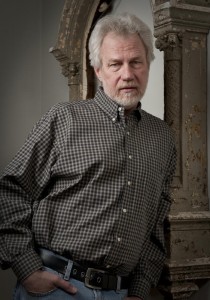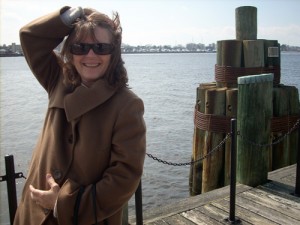 Dorianne Laux’s most recent collections are The Book of Men and Facts about the Moon. She is co-author of a handbook on writing, The Poet’s Companion, all from W.W. Norton. A finalist for the National Book Critics Circle Award, and winner of the Oregon Book Award, Laux is also author of Awake, What We Carry, and Smoke from BOA Editions, as well as a fine press edition, Dark Charms, from Red Dragonfly Press. Recent poems appear in The American Poetry Review, Cimarron Review, Cerise Press, Margie, The Seattle Review, Tin House and Orion Magazine. Laux teaches poetry in the MFA Program at North Carolina State University and is founding faculty at Pacific University’s Low Residency MFA Program.
Dorianne Laux’s most recent collections are The Book of Men and Facts about the Moon. She is co-author of a handbook on writing, The Poet’s Companion, all from W.W. Norton. A finalist for the National Book Critics Circle Award, and winner of the Oregon Book Award, Laux is also author of Awake, What We Carry, and Smoke from BOA Editions, as well as a fine press edition, Dark Charms, from Red Dragonfly Press. Recent poems appear in The American Poetry Review, Cimarron Review, Cerise Press, Margie, The Seattle Review, Tin House and Orion Magazine. Laux teaches poetry in the MFA Program at North Carolina State University and is founding faculty at Pacific University’s Low Residency MFA Program.
Q (Meg Pokrass): What is your feeling about having mentors as a writer?
I think mentorship is vital for many writers. Having someone who thinks well of your work, has optimism about it, believes you are struggling hard to say something of importance and relevance, is essential. The mentor who believes these things about your work is also in the best position to criticize the work, and the mentee can take the harshest criticism when they know, at the heart of it, the mentor is coming from a position of high regard. Among my many mentors has been Philip Levine. He believes in my work, which helps me persevere, but more importantly for me, I believe in his work and try to rise up to the high standards he places on his own poetry. I watch very closely how he approaches his work, his life, and his subjects. I think that’s often the most important aspect of mentorship, emulation. Many of my mentors are not known to me, but I have learned from their words, their lines, their images, their ideas and their perseverance, their work ethic. I wrote this poem about Phil and his mentorship.
*Mine Own Phil Levine
after W.S. Merwin
What he told me, I will tell you
There was a war on
It seemed we had lived through
Too many to name, to number
There was no arrogance about him
No vanity, only the strong backs
Of his words pressed against
The tonnage of a page
His suggestion to me was that hard work
Was the order of each day
When I asked again, he said it again,
pointing it out twice
His Muse, if he had one, was a window
Filled with a brick wall, the left hand corner
Of his mind, a hand lined with grease
And sweat: literal things
Before I knew him, I was unknown
I drank deeply from his knowledge
A cup he gave me again and again
Filled with water, clear river water
He was never old, and never grew older
Though the days passed and the poems
Marched forth and they were his words
Only, no other words were needed
He advised me to wait, to hold true
To my vision, to speak in my own voice
To say the thing straight out
There was the whole day about him
The greatest thing, he said, was presence
To be yourself in your own time, to stand up
That poetry was precision, raw precision
Truth and compassion: genius
I had hardly begun. I asked, How did you begin
He said, I began in a tree, in Lucerne
In a machine shop, in an open field
Start anywhere
He said If you don’t write, it won’t
Get written. No tricks. No magic
About it. He gave me his gold pen
He said What’s mine is yours.
*”Mine Own Phil Levine” is closely patterned after W.S. Merwin’s poem “Berryman” and the title is taken from Philip Levine’s essay titled “Mine Own John Berryman” which in turn is based on the Thomas Wyatt poem, “Mine Own John Poins”.
What do you do when you feel stuck or uninspired and does it work to trick the brain into working?
Go to your facebook page and see if you’ve posted a new list of words! I love nothing more than a handful of words, a phrase, a quotation, a time of year, a color, a place, and a full hour to try to put them all together into something that might come alive. It’s like a puzzle and all I have to do is fit the pieces together with the glue of my unconscious. And there is nothing like play to trick the brain into working.
Are there favorite writing exercises you give students that you can share?
Many of the exercises I give are like the one above, random words, images, ideas, thrown out in an attempt to loosen things up, shake something new out of the old pockets. And yes, I’ll ask students to go someplace they love, or someplace that scares them or makes them angry or sad, and just sit and feel that for a while before writing. The trick is to hypnotize yourself back into yourself, back into your body and into the deepest part of you psyche or farthest reaches of your imagination so you can say something that surprises you, a thing you don’t yet know.
The best advice as a writer you ever got — or make something up!
Loosen up and take a risk. I think as we go along, we tend to get attached to the way we work best, what has been accepted as good. I try to wheedle myself out of those known places, the worn path, the rumpled bed, the comfortable chair.
What is your favorite recent film?
My favorite recent film is Winter’s Bone. Tough women and hard core meth in the Ozark mountains.
The Fictionaut Five is our ongoing series of interviews with Fictionaut authors. Every Wednesday — and sometimes, on Saturdays — Meg Pokrass asks a writer five (or more) questions. Meg is the editor-at-large for BLIP Magazine, and her stories and poems have been published widely. Her first full collection of flash fiction, “Damn Sure Right” will be out in February from Press 53. She blogs at http://megpokrass.com.
 Dorianne Laux’s most recent collections are The Book of Men and Facts about the Moon. She is co-author of a handbook on writing, The Poet’s Companion, all from W.W. Norton. A finalist for the National Book Critics Circle Award, and winner of the Oregon Book Award, Laux is also author of Awake, What We Carry, and Smoke from BOA Editions, as well as a fine press edition, Dark Charms, from Red Dragonfly Press. Recent poems appear in The American Poetry Review, Cimarron Review, Cerise Press, Margie, The Seattle Review, Tin House and Orion Magazine. Laux teaches poetry in the MFA Program at North Carolina State University and is founding faculty at Pacific University’s Low Residency MFA Program.
Dorianne Laux’s most recent collections are The Book of Men and Facts about the Moon. She is co-author of a handbook on writing, The Poet’s Companion, all from W.W. Norton. A finalist for the National Book Critics Circle Award, and winner of the Oregon Book Award, Laux is also author of Awake, What We Carry, and Smoke from BOA Editions, as well as a fine press edition, Dark Charms, from Red Dragonfly Press. Recent poems appear in The American Poetry Review, Cimarron Review, Cerise Press, Margie, The Seattle Review, Tin House and Orion Magazine. Laux teaches poetry in the MFA Program at North Carolina State University and is founding faculty at Pacific University’s Low Residency MFA Program.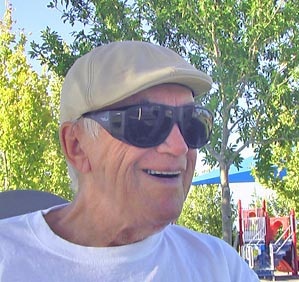
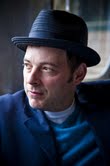 Jonathan Evison
Jonathan Evison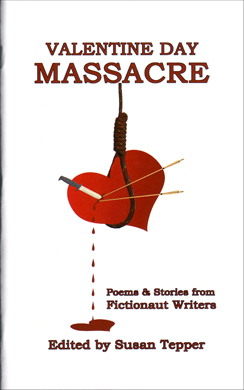
 Erika Dreifus
Erika Dreifus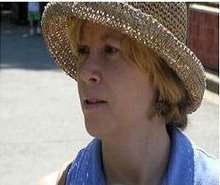 Susan: Linda, your story “
Susan: Linda, your story “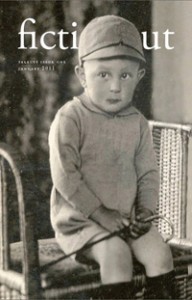 We’re happy to present Fictionaut Selects, a new series of collected stories and poetry from Fictionaut, edited by
We’re happy to present Fictionaut Selects, a new series of collected stories and poetry from Fictionaut, edited by 